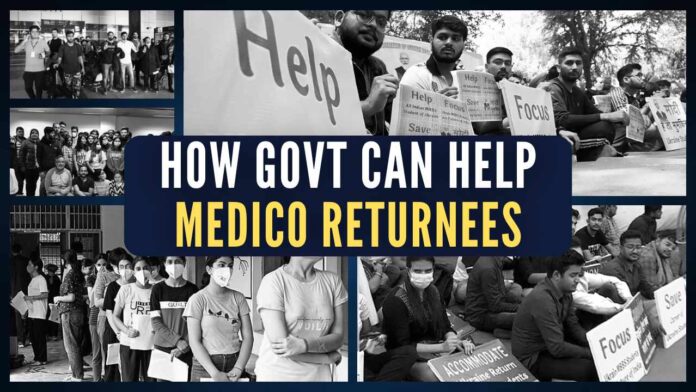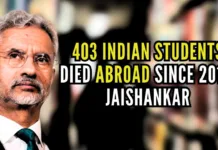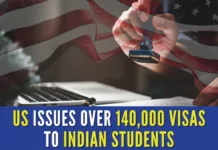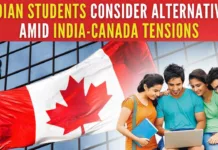
Situation
We face two significant challenges in India, and when we look at them together, we may have an automatic solution to both.
Challenge 1
Supreme Court has urged the Central government and the NMC (National Medical Council) to consider imparting Clinical Training (Internship) to students who have completed their medical education in foreign countries like China, Ukraine, and Russia and help them secure medical degrees in India and practice medicine in India.
“The SC bench was considering petitions filed by the students when they were in their penultimate years. Subsequently, the students completed the courses online and secured completion certificates. However, what came in their way was the inability to complete clinical training.”[1]
The main objections of NMC to facilitating Indian students who have studied abroad from getting clinical training in India, completing their medical education, and practice in India, are the facts that they did not qualify for admission to medical colleges in India, to start with, and the quality of their education and training abroad is unknown.
Challenge 2
An article published by Mr. Dinesh C Sharma in Lancet says, “India still struggles with a rural doctor shortage. In community health centres, the shortfall is huge – surgeons (83%), obstetricians and gynecologists (76%), physicians (83%), and pediatricians (82%). Even in health facilities where doctors, specialists, and paramedic staff have been posted, their availability remains in question because of high rates of absenteeism.”[2]
Reports after reports have been published about the huge shortage of GP doctors and specialists in rural areas across India. Starting salary levels of about Rs.40,000+ are not adequate to attract qualified doctors to work in rural areas. Many out-of-the-box ideas, like the new courses in B.Sc (Community Health), appointing Ayush doctors for positions of allopathic doctors, etc, but none has been implemented. There are also many unresolved court cases on this subject.
This problem has been chronic, going on for ages.
Fresh (and experienced) Indian doctors are anyway unwilling to work in rural areas. The shortage of doctors in rural areas is a fact. So, we should explore the possibility of letting the foreign-educated medical graduates do their clinical training in India and work in rural areas in India, at least for a certain minimum period of time, say 10 years, before they are permitted to migrate to urban areas, or even go abroad. Many such options are open to the government and the government may decide which of these options they want to select.
The government can even conduct a rigorous eligibility test for these students before they are permitted to undergo clinical training, in India.
Dr. Devi Shetty, in his article, says, “All over the world, …medical colleges don’t require 140 (faculty) members to train a hundred students. In fact, 140 faculty members can run a medical college with 1,000 students. So while the whole world has changed, we haven’t.”[3]
With some tweaking of the norms, it should be possible to allow these students to undergo clinical training in at least select hospitals in India.
This will help us solve both the challenges of:
- Helping Indian medical student returnees from countries like China, Russia, and Ukraine.
- Shortage of doctors in rural India.
Interestingly, the shortage of doctors is a worldwide phenomenon, including in developed countries like the US. So, it is possible that after they complete the mandated years of practice as doctors in rural areas in India, they may either continue in rural areas in India, or migrate to urban areas, or do post-graduation in foreign countries, where necessary, and get jobs as doctors abroad, esp for posting in rural areas.
These students had to go abroad and study only because we have not been able to provide them the opportunity to study medicine in India. If we don’t solve the problem of these students, the future of these students will be ruined, and this issue will keep haunting the governments forever.
NMC, being the professional body on this subject, should take an open-minded position and advise the government accordingly.
Note:
1. Text in Blue points to additional data on the topic.
2. The views expressed here are those of the author and do not necessarily represent or reflect the views of PGurus.
Reference:
[1] Supreme Court Sympathises With Medical Students Who Could Not Complete Clinical Training In Foreign Universities, Urges Centre & NMC To Find Solution – Dec 09, 2022, Live Law
[2] India still struggles with rural doctor shortages – Dec 12, 2015, The Lancet Journal
[3] We have made medical education elitist, out of reach of poor families. It will have consequences: Cardiac surgeon Devi Shetty – Dec 24, 2017, The Indian Express
PGurus is now on Telegram. Click here to join our channel and stay updated with all the latest news and views
For all the latest updates, download PGurus App.
- How China can manage its Covid situation today - December 22, 2022
- BJP’s dilemma: Winnability or right candidates? - December 15, 2022
- Strong and credible challenger to Modi - December 13, 2022










